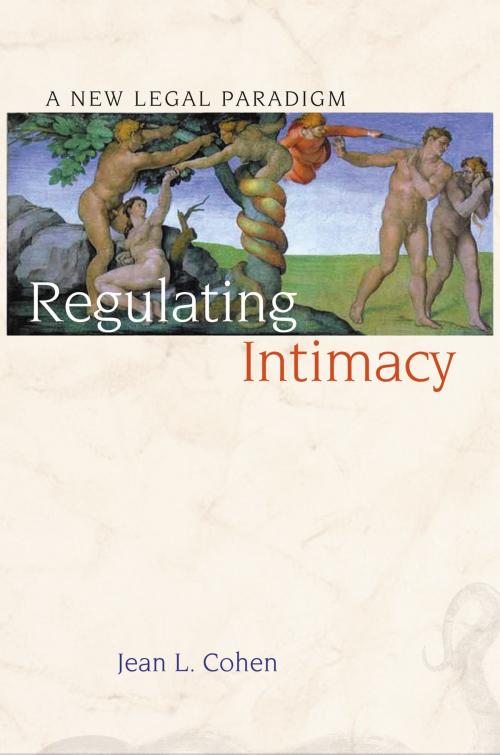Regulating Intimacy
A New Legal Paradigm
Nonfiction, Social & Cultural Studies, Political Science, Government, Public Policy, Religion & Spirituality, Philosophy| Author: | Jean L. Cohen | ISBN: | 9781400825035 |
| Publisher: | Princeton University Press | Publication: | January 10, 2009 |
| Imprint: | Princeton University Press | Language: | English |
| Author: | Jean L. Cohen |
| ISBN: | 9781400825035 |
| Publisher: | Princeton University Press |
| Publication: | January 10, 2009 |
| Imprint: | Princeton University Press |
| Language: | English |
The regulation of intimate relationships has been a key battleground in the culture wars of the past three decades. In this bold and innovative book, Jean Cohen presents a new approach to regulating intimacy that promises to defuse the tensions that have long sparked conflict among legislators, jurists, activists, and scholars.
Disputes have typically arisen over questions that apparently set the demands of personal autonomy, justice, and responsibility against each other. Can law stay out of the bedroom without shielding oppression and abuse? Can we protect the pursuit of personal happiness while requiring people to behave responsibly toward others? Can regulation acknowledge a variety of intimate relationships without privileging any? Must regulating intimacy involve a clash between privacy and equality? Cohen argues that these questions have been impossible to resolve because most legislators, activists, and scholars have drawn on an anachronistic conception of privacy, one founded on the idea that privacy involves secrecy and entails a sphere free from legal regulation. In response, Cohen draws on Habermas and other European thinkers to present a robust "constructivist" defense of privacy, one based on the idea that norms and rights are legally constructed.
Cohen roots her arguments in debates over three particularly contentious issues: reproductive rights, sexual orientation, and sexual harassment. She shows how a new legal framework, "reflexive law," allows us to build on constructivist insights to approach these debates free from the liberal and welfarist paradigms that usually structure our legal thought. This new legal paradigm finally allows us to dissolve the tensions among autonomy, equality, and community that have beset us. A synthesis of feminist theory, political theory, constitutional jurisprudence, and cutting-edge research in the sociology of law, this powerful work will reshape not only legal and political debates, but how we think about the intimate relationships at the core of our own lives. .
The regulation of intimate relationships has been a key battleground in the culture wars of the past three decades. In this bold and innovative book, Jean Cohen presents a new approach to regulating intimacy that promises to defuse the tensions that have long sparked conflict among legislators, jurists, activists, and scholars.
Disputes have typically arisen over questions that apparently set the demands of personal autonomy, justice, and responsibility against each other. Can law stay out of the bedroom without shielding oppression and abuse? Can we protect the pursuit of personal happiness while requiring people to behave responsibly toward others? Can regulation acknowledge a variety of intimate relationships without privileging any? Must regulating intimacy involve a clash between privacy and equality? Cohen argues that these questions have been impossible to resolve because most legislators, activists, and scholars have drawn on an anachronistic conception of privacy, one founded on the idea that privacy involves secrecy and entails a sphere free from legal regulation. In response, Cohen draws on Habermas and other European thinkers to present a robust "constructivist" defense of privacy, one based on the idea that norms and rights are legally constructed.
Cohen roots her arguments in debates over three particularly contentious issues: reproductive rights, sexual orientation, and sexual harassment. She shows how a new legal framework, "reflexive law," allows us to build on constructivist insights to approach these debates free from the liberal and welfarist paradigms that usually structure our legal thought. This new legal paradigm finally allows us to dissolve the tensions among autonomy, equality, and community that have beset us. A synthesis of feminist theory, political theory, constitutional jurisprudence, and cutting-edge research in the sociology of law, this powerful work will reshape not only legal and political debates, but how we think about the intimate relationships at the core of our own lives. .















